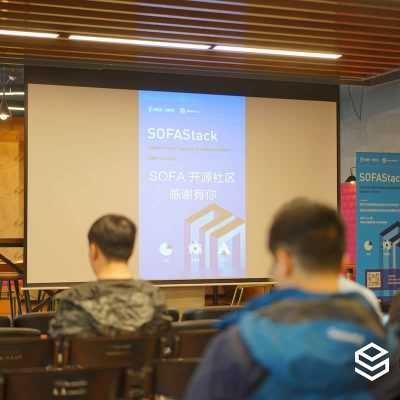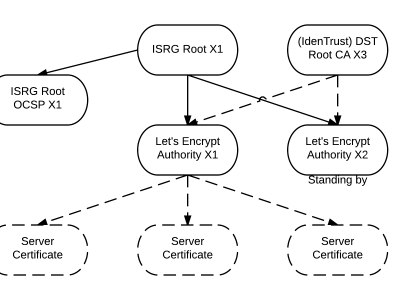Python Beautiful Soup 刮取簡易指南

今天我們將討論如何使用 Beautiful Soup 庫從 HTML 頁面中提取內容,之後,我們將使用它將其轉換為 Python 列表或字典。
什麼是 Web 刮取,為什麼我需要它?
答案很簡單:並非每個網站都有獲取內容的 API。你可能想從你最喜歡的烹飪網站上獲取食譜,或者從旅遊博客上獲取照片。如果沒有 API,提取 HTML(或者說 刮取 可能是獲取內容的唯一方法。我將向你展示如何使用 Python 來獲取。
並非所以網站都喜歡被刮取,有些網站可能會明確禁止。請於網站所有者確認是否同意刮取。
Python 如何刮取網站?
使用 Python 進行刮取,我們將執行三個基本步驟:
- 使用
requests庫獲取 HTML 內容 - 分析 HTML 結構並識別包含我們需要內容的標籤
- 使用 Beautiful Soup 提取標籤並將數據放入 Python 列表中
安裝庫
首先安裝我們需要的庫。requests 庫從網站獲取 HTML 內容,Beautiful Soup 解析 HTML 並將其轉換為 Python 對象。在 Python3 中安裝它們,運行:
pip3 install requests beautifulsoup4
提取 HTML
在本例中,我將選擇刮取網站的 Techhology 部分。如果你跳轉到此頁面,你會看到帶有標題、摘錄和發布日期的文章列表。我們的目標是創建一個包含這些信息的文章列表。
網站頁面的完整 URL 是:
https://notes.ayushsharma.in/technology
我們可以使用 requests 從這個頁面獲取 HTML 內容:
#!/usr/bin/python3
import requests
url = 'https://notes.ayushsharma.in/technology'
data = requests.get(url)
print(data.text)
變數 data 將包含頁面的 HTML 源代碼。
從 HTML 中提取內容
為了從 data 中提取數據,我們需要確定哪些標籤具有我們需要的內容。
如果你瀏覽 HTML,你會發現靠近頂部的這一段:
<div class="col">
<a href="/2021/08/using-variables-in-jekyll-to-define-custom-content" class="post-card">
<div class="card">
<div class="card-body">
<h5 class="card-title">Using variables in Jekyll to define custom content</h5>
<small class="card-text text-muted">I recently discovered that Jekyll's config.yml can be used to define custom
variables for reusing content. I feel like I've been living under a rock all this time. But to err over and
over again is human.</small>
</div>
<div class="card-footer text-end">
<small class="text-muted">Aug 2021</small>
</div>
</div>
</a>
</div>
這是每篇文章在整個頁面中重複的部分。我們可以看到 .card-title 包含文章標題,.card-text 包含摘錄,.card-footer > small 包含發布日期。
讓我們使用 Beautiful Soup 提取這些內容。
#!/usr/bin/python3
import requests
from bs4 import BeautifulSoup
from pprint import pprint
url = 'https://notes.ayushsharma.in/technology'
data = requests.get(url)
my_data = []
html = BeautifulSoup(data.text, 'html.parser')
articles = html.select('a.post-card')
for article in articles:
title = article.select('.card-title')[0].get_text()
excerpt = article.select('.card-text')[0].get_text()
pub_date = article.select('.card-footer small')[0].get_text()
my_data.append({"title": title, "excerpt": excerpt, "pub_date": pub_date})
pprint(my_data)
以上代碼提取文章信息並將它們放入 my_data 變數中。我使用了 pprint 來美化輸出,但你可以在代碼中忽略它。將上面的代碼保存在一個名為 fetch.py 的文件中,然後運行它:
python3 fetch.py
如果一切順利,你應該會看到:
[{'excerpt': "I recently discovered that Jekyll's config.yml can be used to"
"define custom variables for reusing content. I feel like I've"
'been living under a rock all this time. But to err over and over'
'again is human.',
'pub_date': 'Aug 2021',
'title': 'Using variables in Jekyll to define custom content'},
{'excerpt': "In this article, I'll highlight some ideas for Jekyll"
'collections, blog category pages, responsive web-design, and'
'netlify.toml to make static website maintenance a breeze.',
'pub_date': 'Jul 2021',
'title': 'The evolution of ayushsharma.in: Jekyll, Bootstrap, Netlify,'
'static websites, and responsive design.'},
{'excerpt': "These are the top 5 lessons I've learned after 5 years of"
'Terraform-ing.',
'pub_date': 'Jul 2021',
'title': '5 key best practices for sane and usable Terraform setups'},
... (truncated)
以上是全部內容!在這 22 行代碼中,我們用 Python 構建了一個網路刮取器,你可以在 我的示例倉庫中找到源代碼。
總結
對於 Python 列表中的網站內容,我們現在可以用它做一些很酷的事情。我們可以將它作為 JSON 返回給另一個應用程序,或者使用自定義樣式將其轉換為 HTML。隨意複製粘貼以上代碼並在你最喜歡的網站上進行試驗。
玩的開心,繼續編碼吧。
本文最初發表在作者個人博客上,經授權改編。
via: https://opensource.com/article/21/9/web-scraping-python-beautiful-soup
作者:Ayush Sharma 選題:lujun9972 譯者:MjSeven 校對:wxy
本文轉載來自 Linux 中國: https://github.com/Linux-CN/archive






















